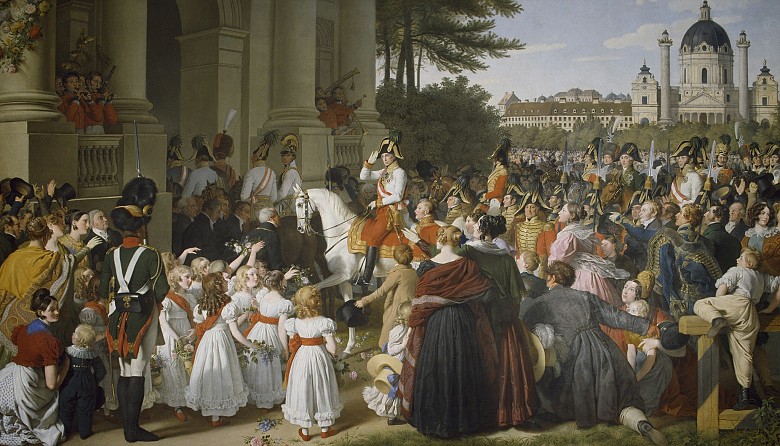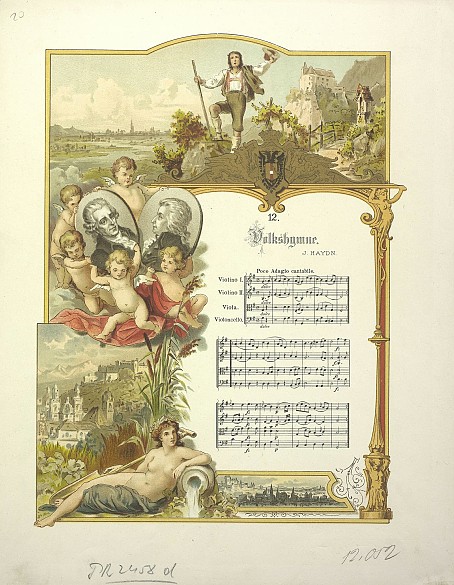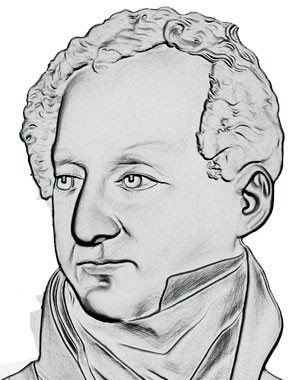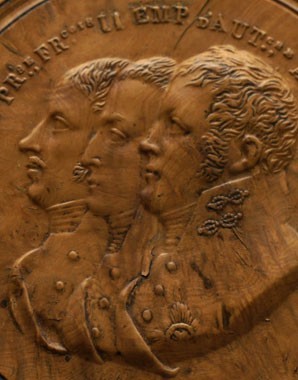The ‘good emperor Franz’ and his hatchet man.
Franz was very popular as emperor and knew how to present himself as the well-meaning citizen-monarch, guarantor and symbol of the Habsburg empire, alongside Metternich, a figure much criticized for his reactionary policies.
Over the following years Klemens Wenzel Lothar von Metternich (1773–1859) led the Monarchy with great circumspection through the maelstrom of events. Known as the ‘Coachman of Europe’, he was the active mastermind at the side of the procrastinating Emperor Franz.
The turning point came when Napoleon, weakened by the catastrophic end to his Russian campaign, was defeated at the Battle of the Nations near Leipzig. Thanks to Metternich, Austria was able to make its mark again as a Great Power by convening the Congress of Vienna in 1814/15, at which the new European order was negotiated. Emperor Franz was assigned the role of host. This entailed huge expenditure on the part of a state that had been bled almost dry by the long years of warfare.
The glittering magnificence of the balls and festivities and the parading of the monarchs were overshadowed by the Napoleon’s return from Elba to Paris. Following his final defeat at the Battle of Waterloo on 18 June 1815 the erstwhile ruler of Europe was sent into exile on the remote Atlantic island of St Helena.
Austria emerged from the negotiations with its territories consolidated. Losses were made good and Austria was able to reassert its status as a Great Power. While the outposts of the Netherlands and Polish West Galicia were lost for good, Salzburg, Venetia and Dalmatia were now incorporated permanently into the Monarchy and Lombardy was regained. The reinstatement of members of Habsburg collateral lines as rulers in Modena and Tuscany reinforced Austria’s influence in Italy.
In 1815 the Holy Alliance was forged between the leading reactionary conservative monarchies in Europe. Concluded between the Austrian emperor, the tsar of Russia and the king of Prussia, its aim was to collectively suppress any revolutionary developments and to strengthen the principle of monarchy.
Austrian domestic policy during this epoch was shaped by reactionary measures and the limitation of civil liberties in a virtual police state devised by Metternich with an extensive system of informers and strict censorship.
Economic consolidation also took place at this time, with Austria entering the first phase of industrialisation. Technological progress culminated in the foundation of the Vienna Imperial-Royal Polytechnic Institute in 1815, the predecessor of today’s Technische Universität.
The latter stage of Emperor Franz’s reign was a curious mixture of stifling reaction and cultural flowering. Despite the political stagnation the middle classes were able to expand and consolidate their role as the leading social stratum. The Biedermeier era in Austria symbolizes this dichotomy: cosy Gemütlichkeit and middle-class prosperity stood in the shadow of enormous injustices such as the social problems resulting from the growing masses of the industrial proletariat and impoverished peasant farmers. The idea of nationalism, spawned by the French Revolution, fell on fertile soil in the multi-ethnic state. Problems that would determine the development of the Monarchy until its end in 1918 began to loom, held in check for the time being by the oppressive power of the state as personified by the omnipotent Prince Metternich, who had been appointed Court Chancellor and Chancellor of State in 1821.
When Emperor Franz died at the age of 67 in 1835 after a reign of 43 years, he left his feeble son Ferdinand a solid legacy. However, he was aware that the peace was deceptive – his political testament culminated in the following advice for his son:
‘Do not disturb the foundations of the edifice of state; rule and change nothing; stand fast upon the fundamental principles by the constant observation of which I have steered the Monarchy, not only through the storms of difficult times … Honour acquired rights; … Vest in Prince Metternich, my truest servant and friend, the trust that I have devoted to him over such a long succession of years. Do not come to any decisions about public affairs or people without having listened to his opinion on them.’
















